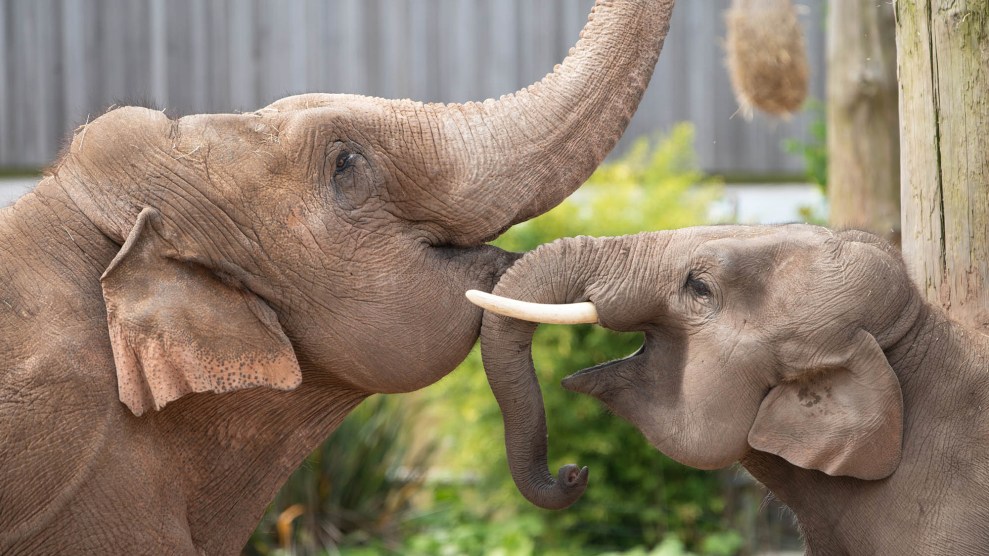BAKU, Azerbaijan — My friends are gonna die.
I’m not sure when, but it’ll happen. First they’ll get a weird tingly feeling caused by aggressive mutant bacteria trying to find a way out of their digestive tracts. Soon the chills will begin. By the end their skins will be covered with pustules on top of boils, they’ll be screaming for their mothers, their deadbeat dads, anyone, anyone, anyone! The whole thing will end with a decidedly closed-casket affair.
You see, my friends went for a swim in the Caspian Sea, a body of water surrounded by countries even the most obsessive trivia buffs can’t spell, much less point out on a map — places like Turkmenistan, Azerbaijan and Kazakhstan. I hardly blamed them for their ill-considered absence of environmental acumen; our plane dropped into the Azeri capital of Baku on the hottest day in memory. One hundred and eighteen degrees, plus a zillion percent humidity.
“I’ve lived here my entire life,” a guy who looked old enough to predate the October Revolution told my little group of sweltering Americans. “I have never experienced any day as hot as this one.”
“Really?” we asked.
“Really,” he assured us.
Oh, I know what you’re thinking: You’ve been to Phoenix, or even Mexico City, maybe even in July. Believe me: That’s amateur hour compared to Baku.
You can’t walk the shoreline of this weird Turko-Soviet city on a day like that without looking east and contemplating a jump into the blue — well, bluish — waters of the Caspian. But if there is a fouler, more disgusting body of water on the planet, I can’t imagine how or where. A ruddy sludge of brackish raw sewage swirls slowly around balls of spilled crude oil, all of it supporting a flotilla of litter, medical waste bags and dead quadrupeds that may or may not be mammals. Noxious gases pop into the atmosphere with each lethargic wave. When my companions got back from their trashy swim, a miasma of moist toxins rose off their stained clothing in clouds.
The Caspian, known during the Soviet era as the world’s leading source of caviar from a fish called the Caspian sturgeon, suffers the horrific misfortune of covering the world’s largest untapped oil reserves. On- and off-shore drilling rigs dot the horizon of this horrifically impoverished oil-rush town. It’s clear that the Azeris are getting by on long-term optimism about petrodollars trickling down; for now they’re scraping by on nearly nothing while watching their fishing industry deteriorate along with the fleet of abandoned trawlers dotting the coastline.
If nothing else, Baku provides a textbook argument against putting all one’s economic eggs in a single foreign-owned basket. During the 1970s, the Azeri Soviet Socialist Republic began an extensive rehab of the historic district surrounding Baku’s Maiden’s Tower, the city’s oldest structure (it dates to either the 12th or the 14th century, depending on who’s talking). But efforts to lure tourists to this ancient place fell apart after independence in 1991, and the Tower district now consists of some decrepit Russian restaurants, sad joints hawking ratty Soviet-era postcards and the Tower itself, which frankly isn’t any big deal.
Throughout the mid-90s, Azeri governments more concerned about their Chechen and Armenian neighbors than their own citizenry shacked up with Big Oil in a tired rendition of the oldest sellout in the book: In exchange for kickbacks to a tiny coterie of government officials, Western oil corporations bought drilling rights for a song. Every day, hundreds of thousands of barrels of a highly-limited resource flow out of the Caspian, leaving Joe and Jane Azeri with Jack Shit — except for the opportunity to do the backstroke in the squalid residue of their stolen oil wealth.
Making things even worse, which always seems to be the case in post-Soviet Central Asia, oil prices tanked in the late 90s, and what little oil-related economic activity had been flowing into Azerbaijan — mostly in the form of three-star hotels, two-star hookers and cheesy British-style pubs for oil execs popping in and out of the oddly vacant and sadly postmodern international airport — ground to a halt. And just when gas-guzzling SUVs seemed poised to rescue the one-trick-pony Azeri oil-rush economy from disaster, an Exxon-Mobil exploration team hit the biggest Caspian oil reserve yet — at least 50 billion barrels — in the northeast sector controlled by Kazakhstan. Two months ago, Kazakhstan’s President Nursultan Nazarbayev predicted that his nation would become the world’s second-largest oil-producing state after Saudi Arabia by 2030 — a flamboyant assertion that currently looks dead accurate.
Unless someone makes a Beverly-Hillbillies-style hit in their Baku backyard, the Great Baku Oil Rush of 1991 to 1996 is officially over. Oil wells are pumping out the last of what are, compared to the Kazakh strike, tiny reserves. Operations are shifting a 12-hour ferry ride across this vast, disgusting inland body of water.
Young Azeri lovers stroll the Caspian boardwalk, making out among the weeds and the stench, and dusty minivans still race through the streets as if they had some reason to rush. But Baku is fucked, and until its useless leaders realize that, or its put-upon people do something about their useless leaders, it will merely be going through the motions of a dream that was never meant for them in the first place.
















